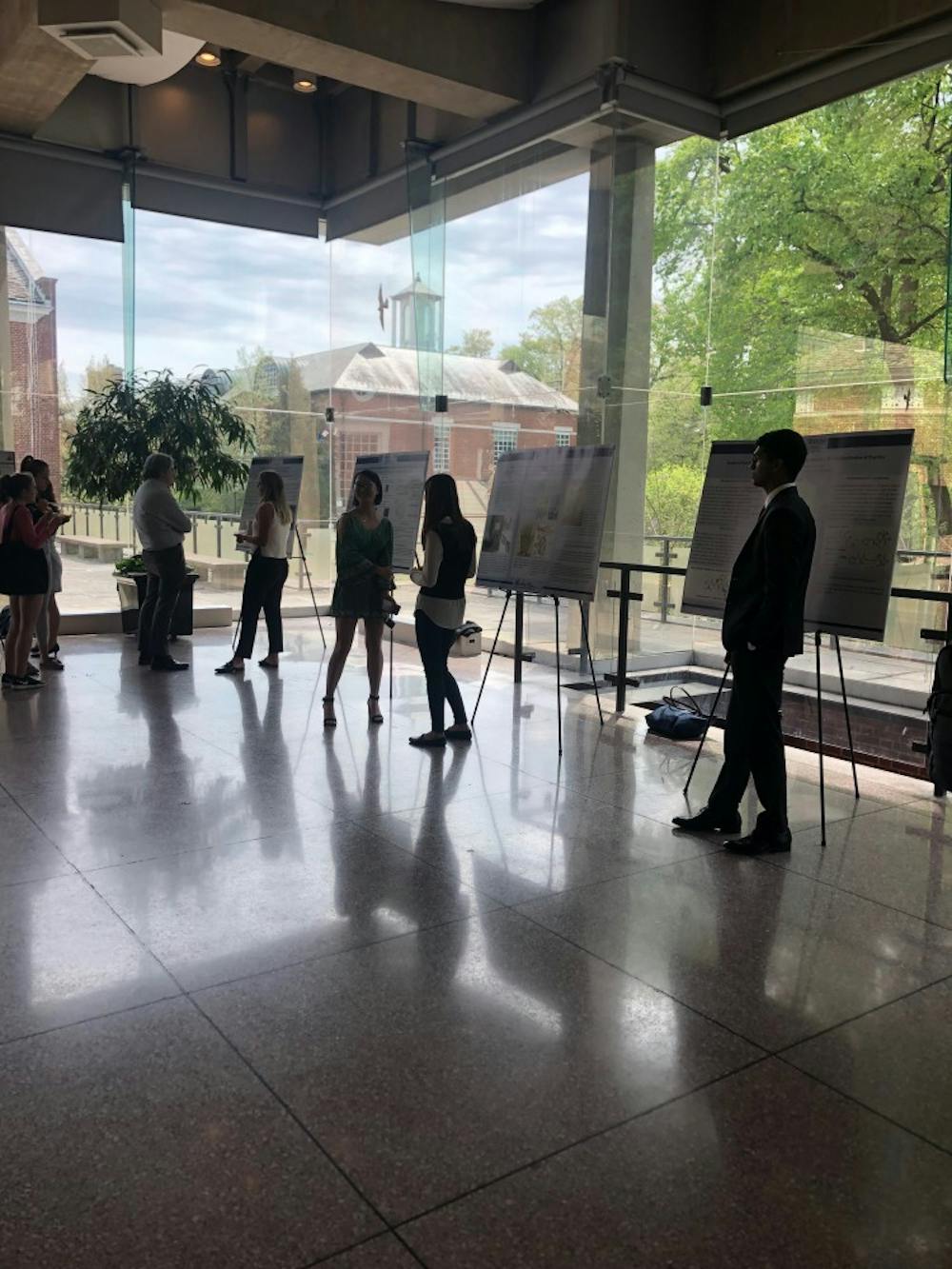Senior Woodrow Wilson Fellows presented their independent research projects to the Hopkins community on Thursday, April 25. The Woodrow Wilson Fellowship Program provides undergraduates with financial support and faculty mentoring on research over the course of three or four years. Students apply to the program as incoming students or rising sophomores by submitting a project proposal and they work on their projects during the entirety of their Hopkins careers.
The event began with two keynote presentations, given by seniors Grace Duan and Shahmir Ali, and an original film screening by senior Giovanna Molina. Duan, Ali and Molina fielded questions from the audience on their projects, and a poster session followed.
Duan presented on her work understanding the connection between the Tau protein, sleep and Alzheimer’s disease. Duan experimented with flies because 60 percent of their genome is shared with humans, they sleep and they are easy to handle and manipulate.
Ali’s work focused on developing and testing a curriculum to improve understanding and interest in issues of water quality and sanitation in Pakistan. Ali explained that these issues are of particular concern in Pakistan in part because of a need for innovation in solving these issues within the country. His intervention curriculum was tested at a secondary school in Lahore, Pakistan.
Molina’s film, Chasing Eden, illustrated what it is like to meet someone and feel like you already know them. Molina explained that she had visualized many of the images that were captured in her film in her head for a while before production. It was filmed in multiple locations around Maryland, and featured recurring motifs, such as water and flowers.
Fellows conduct research in a variety of fields based on their personal interests. This year projects covered a range of topics including neuroscience, public health, music history and international relations.
Following the presentations, The News-Letter had the opportunity to speak with some of the fellows.
Duan explained how she learned about the link between sleep and Alzheimer’s during high school, and wanted to explore this further at Hopkins.
“During my senior year I did an independent study on the history of Neuroscience and technology,” Duan said.
“One of the most interesting things I learned ... was the fact that poor sleep was linked to Alzheimer’s disease, and that has stuck with me for a really long time.”
Duan expressed that conducting research has helped her to develop both personally and professionally.
“I think it’s made me a better scientist, a better critical thinker, a better student and a better future physician to learn about how scientific knowledge comes about,” Duan said.
Senior public health and neuroscience major Kushi Ranganath developed a digital simulation of corner stores in order to understand interventions that could help curb obesity in the food deserts of Baltimore City. She explained that her work was inspired by her experiences as a freshman exploring Baltimore and realizing how many corner stores and how few grocery stores there were.
“When I started school here at Hopkins, I almost immediately discovered just how much of a food desert Baltimore is,” Ranganath said. “If you go out in certain neighborhoods, all you’ll see is the really small corner stores … predominantly selling unhealthy foods.”
Ranganath’s research found that just levying a tax on junk food is not necessarily effective at promoting healthy food purchasing decisions. Other solutions she tested, in particular coupling a junk food tax with incentives to purchase healthy foods, were more effective at encouraging consumers to make healthy decisions.
“These results are showing us that a junk food tax alone doesn’t seem to be the right solution,” Ranganath said. “We can’t just make unhealthy foods more expensive without giving people more affordable alternatives.”
Duan encouraged students to get involved with research if they have a passion for creating new knowledge, as it significantly impacted her own college experience.
“It’s so great seeing other people interested in my project and the work that I’ve done,” Duan said. “To create a product at the end of your four years at Hopkins, it’s really quite special.”





